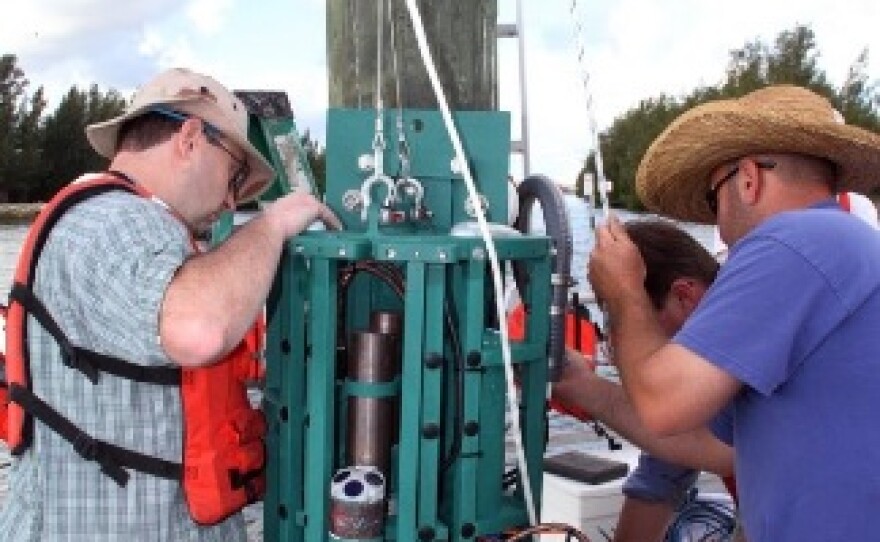A group of Florida lawmakers is deciding how much money to spend cleaning Florida waterways polluted by Lake Okeechobee runoff. A Wednesday committee hearing focused largely on helping the Indian River Lagoon, but some presenters differed over funding requests.
Before listening to presenters stating why the funds were needed, Umatilla Republican Senator Alan Hays set the tone of the meeting by describing how his Senate Appropriation Subcommittee on General Government could be swayed.
“Our ultimate objective is to know that the expenditures that we’re authorizing are based on science, not just something that sounded good or smelled good five, ten years ago. We want something that’s verifiable, reliable, and predictable," said Hays.
The committee, considering $220 million worth of environmental recommendations, focused largely on the Indian River Lagoon, which has been plagued by massive animal die-offs and the elimination of thousands of acres of seagrass.
But researchers aren’t sure of the causes or of what can be done to help the waterway. Among them are scientists from Florida Atlantic University’s Harbor Branch Institute. Cara Perry, who represents the Institute, says they want to create statistical models and measure water quality using a network of what's called LOBOs, or Land/Ocean Biogeochemical Observatories, to help the lagoon’s recovery.
“So, the question is if funds and resources are limited, what areas should be labeled priority? And, predictive modeling can answer those types of questions and more," said Perry.
Her proposal won Hays over, but lawmakers later heard a similar idea from Dr. Edie Widder, senior scientist with the Ocean Research & Conservation Association. Widder says there’s not much difference between the proposals, except she believes hers is cheaper.
“What’s the difference and/or relationship between what you’re presenting and what FAU presented before you,” asked Orlando Democratic Senator Darren Soto.
“The system that they’re using is an excellent system, but it’s one that is in the high price range that I spoke of before that the U.S. commission and Ocean Policy report indicated that we need to be finding low-cost solutions so we can have a lot more sensors out there, and that has been our goal," replied Widder.
Widder’s proposal asks for $2 million to help put 25 of what are called Kilroy sensors in polluted areas to monitor water conditions. Lawmakers gave no indication which of the proposals they’d fund.
The committee also looked into removing the muck that’s made some waterways so dirty. Some presenters suggested what’s called sand capping, while others advocated for appropriating $20 million dollars to dredge the muck from the Indian River Lagoon.
For more news updates, follow Sascha Cordner on Twitter: @SaschaCordner.






